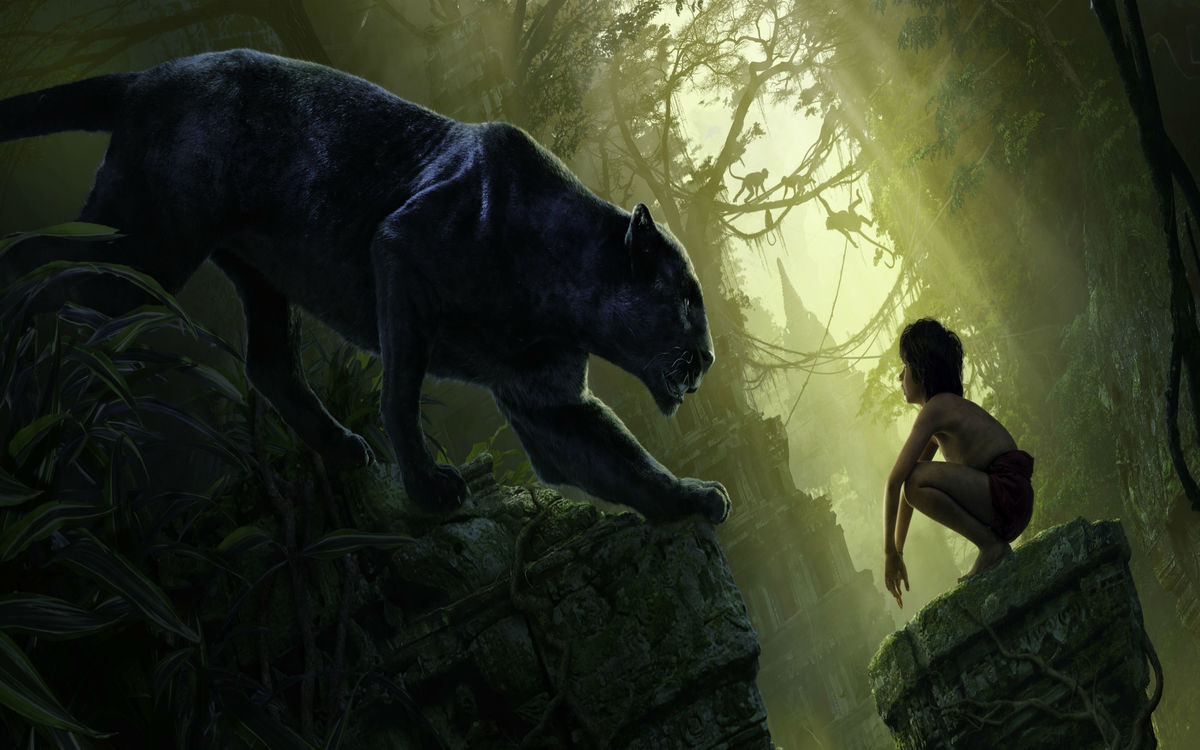- 1967 animation never made it to China during Cultural Revolution
- Zootopia poised to unseat Kung Fu Panda 3 as top-grossing animation
- $5.5 Billion Shanghai Disney park to be company’s No. 2 park after Orlando
Disney’s live-action reboot of its animated musical classic The Jungle Book will open in China on April 15 simultaneously with its U.S. release, following closely the huge China success of Zootopia, another trademark family film, and warming up the nation for the June opening of the company’s Shanghai resort.
Director Jon Favreau’s adaptation of Rudyard Kipling’s classic book is called Fantasy Forest in Chinese (奇幻森林 / Qíhuàn Sēnlín) and will be imported by the China Film Group, the country’s dominant state-backed distributor. The film will screen in the RealD 3D and IMAX 3D formats, according to local media reports, allowing for theaters to charge a premium for tickets.
The live action version of the beloved childhood tale—inspired by the jungles of Kipling’s youth—is being released in India, where Kipling grew up, one week ahead of its U.S. and Chinese release. The Indian version has been dubbed into Hindi, but it’s as yet unclear if the film will be dubbed into Mandarin upon release in China, or simply subtitled.
Disney’s original, animated Jungle Book film was released in 1967, just as China plunged into the decade-long Cultural Revolution, a period when the local film industry ground nearly to a total standstill. Today, Chinese animators aspire to the global success proven possible by films such as Zootopia and Disney rival DreamWorks Animation’s Kung Fu Panda series. Kung Fu Panda 3, released in late January in China, now ranks as the country’s most successful animated feature of all time. It was a co-production between DWA and Oriental Dreamworks of Shanghai.
Walt Disney Animation Studios’ animated Zootopia (疯狂动物城), released in China on March 4, has garnered Disney Animation and Pixar’s biggest openings ever in China, and become the company’s largest box-office opening ever. The family flick is on track to become the first ever animated film to gross RMB 1 billion in China, beating out even KFP3.
Speaking at the Deutsche Bank 2016 Media, Internet & Telecom Conference in Florida on Tuesday, Disney CEO Bob Iger said China’s rapidly growing box office sales make the country increasingly important to Disney.
“You can’t launch a global tentpole without pivoting to China,” the CEO told the Wall Street analysts in attendance.
Beyond the box office, Disney’s $5.5 billion Shanghai resort—the company’s the first vacation destination in mainland China and a joint venture with the Chinese state-backed consortium Shanghai Shendi Group—is set to open on June 16.
Iger talked up the potential for the park, noting that with transit services, 300 million people will live within a three-and-a-half hour commute. The success of the new mainland park could further dent the fortunes of Hong Kong Disneyland which posted a net loss of HK$148 million ($19 million) for 2015 in February, its first net loss in four years.
But Disney’s success in China hasn’t been totally welcomed by locals. Last week, a culture official from east China’s Anhui province warned against a Westernization of Chinese culture if the country allowed too many Disneyland theme parks into China.
Speaking at the “two sessions,” a high-level political gathering held each year in Beijing, Li Xiusong suggested more Chinese-style theme parks should be encouraged to rival the Disney resort.
“Since children will pursue Western culture when they are young, they will like Western culture when they grow up,” he said, according to local reports. “Hence, they will become uninterested in Chinese culture.”
“If Chinese culture can’t attract Chinese children, it will gradually start to influence Socialism with Chinese characteristics,” Li said.
—Additional reporting Zoe Law






